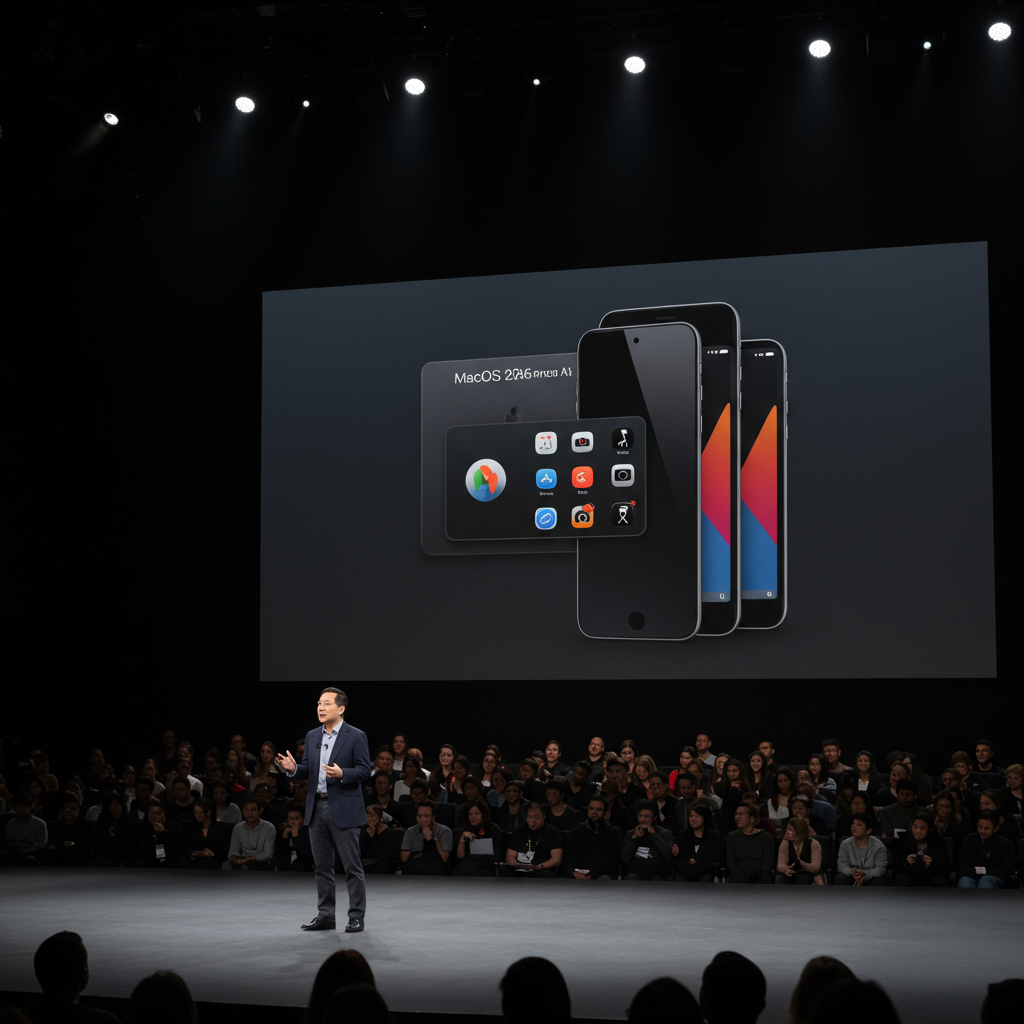Facebook is prompting users with a new request that has significant privacy implications. The social media giant is asking for access to your phone’s entire camera roll, even photos you haven’t shared, to power Meta AI-driven creative suggestions. This feature appears when you’re trying to create a Facebook Story, presenting a pop-up message that asks you to opt into “cloud processing.” Agreeing to this request means allowing Facebook to access and potentially analyze your personal photo collection using artificial intelligence.
What is Facebook’s New Camera Roll AI Feature?
When you initiate creating a Story on Facebook, you might encounter a screen requesting permission for camera roll access to enable “creative suggestions.” Facebook states that by selecting “Allow,” you permit the platform to generate ideas like collages, recaps, AI restylings, or photo themes from your photos. To achieve this, Facebook explains it will upload media from your camera roll to its servers—referred to as its cloud—on an ongoing basis. This access is reportedly based on metadata points such as time, location, or themes identified within the photos themselves.
According to the pop-up message, Meta emphasizes that the suggestions generated from this process are visible only to you. The company also claims that this media will not be used for ad targeting purposes. These reassurances are intended to alleviate immediate user concerns about their private photos being exposed or exploited for advertising revenue.
Understanding the Permissions You Grant
While the feature is presented as a creative tool, agreeing to “Allow” the cloud processing requires users to accept Meta’s AI Terms of Service. This is where the privacy implications become more pronounced. The AI Terms specify that by opting in, you are permitting Meta’s AI to analyze your media, including facial features. The company further notes that it will use information like the date the photo was taken and the presence of people or objects within the image to inform its creative suggestions.
This access represents a significant step beyond the data Meta previously indicated it would use for training its AI models, which largely focused on publicly shared content across Facebook and Instagram (with an opt-out period offered to EU users). Granting AI direct access to your unshared camera roll data introduces a new layer of personal data analysis into Facebook’s ecosystem. It raises questions about the scope of this analysis and how facial feature data might be utilized or stored.
The Slippery Slope of AI and Personal Data
Experts view features like this as potentially leading down a “slippery slope” when it comes to sharing personal media with large AI providers. Meta, like other major tech companies, has ambitious goals in the field of artificial intelligence. Having the ability to tap into the vast, unstructured dataset of users’ unshared photos on their camera rolls could potentially provide Meta with a unique advantage in the competitive AI development race. This raw, candid data is often more representative of users’ real lives than the curated content they choose to post publicly.
In the tech industry’s rush to innovate with AI, the full implications of agreeing to new features aren’t always transparent to the end user. Consent dialogues are often simplified, and the detailed terms of service can be lengthy and complex. This opacity can lead to users unknowingly granting broader permissions than they intended, particularly concerning sensitive personal data like photographs.
What Meta’s AI Terms Really Say
According to Meta’s AI Terms, which became enforceable as of June 23, 2024, “once shared” (presumably via this cloud processing feature), you agree that Meta’s AI will analyze those images. This analysis explicitly includes facial features. The stated purpose is to offer innovative features, such as summarizing image contents, modifying images, and generating new content based on the image analysis.
Furthermore, the same AI terms grant Meta’s AI the right to “retain and use” any personal information you’ve shared. This is done to personalize the AI’s outputs for you. The company acknowledges it can review your interactions with its AI, including conversations, and that these reviews might involve human personnel. Worryingly, the terms define personal information broadly, stating it includes “information you submit as Prompts, Feedback, or other Content.” This leaves the door open to interpret whether the photos uploaded for “cloud processing”—which are clearly “Content”—could also fall under the category of personal information that Meta’s AI retains and uses more broadly beyond just generating suggestions.
Broader Trends in Proactive AI Integration
This move by Facebook isn’t happening in isolation. It reflects a broader industry trend where artificial intelligence is being integrated more proactively into core software and services, often becoming a default part of the user experience. For example, Google recently introduced multimodal search in its AI Mode, allowing users to ask complex questions about images they upload or point their camera at. While Google’s feature is an explicit, user-initiated query on specific images, it demonstrates the increasing capability and integration of AI image understanding.
Similarly, Google’s Gemini AI has started automatically summarizing long emails in Gmail for some users, displaying “summary cards” without requiring a click. This proactive AI integration aims for convenience but has also raised concerns about the accuracy and reliability of AI-generated summaries. The automatic nature of features like email summarization or Facebook’s proactive camera roll analysis highlights a shift towards AI taking a more embedded role, sometimes with unclear trade-offs regarding user control and data usage. Facebook’s creative suggestions feature fits within this trend of AI proactively analyzing user data (in this case, private photos) to offer perceived value, while potentially introducing new data privacy considerations.
User Awareness and Finding the Setting
Although widespread backlash hasn’t been reported yet, some Facebook users have encountered the pop-up and expressed confusion online. Examples include Facebook automatically suggesting an AI-stylized version of an older photo (which had surprisingly been previously shared, despite the feature focusing on unshared photos) or users seeking help in online groups to disable the feature.
If you’re concerned about this feature or want to manage it, the good news is that it can be controlled within Facebook’s settings. According to the article, the setting is found under “Preferences” and is labeled “Camera roll sharing suggestions.” Inside this section, you should find at least two toggles. One toggle typically relates to Facebook suggesting photos from your camera roll when you are simply browsing the app. The second toggle specifically controls the “cloud processing” functionality that allows Meta’s AI to use your camera roll photos for generating creative suggestions. This second toggle is the critical one for managing the AI photo analysis feature.
Screenshots of the pop-up message have reportedly circulated earlier in the year, suggesting this feature has been in testing for some time. Meta has also published help documentation for the feature, available for both iOS and Android users, indicating it’s a more developed feature rather than a fleeting experiment.
Meta’s Response and the Ongoing Test
Reached for comment on the feature, a Meta spokesperson, Maria Cubeta, confirmed that this is indeed a test currently being conducted in the U.S. and Canada. She reiterated that the suggestions are strictly opt-in, meaning users must explicitly agree via the pop-up to enable it. Cubeta also confirmed that the suggestions are shown only to the user unless they decide to share them, and the feature can be turned off at any point through the settings described above.
Crucially, the spokesperson stated that while camera roll media may be used to improve the suggestions themselves, the photos are not used to improve Meta’s underlying AI models in this specific test. This distinction is important, as it suggests the data from this particular feature is currently firewalled from the broader AI training data sets. However, the language in Meta’s general AI Terms regarding the retention and use of “personal information” (potentially including content like photos uploaded for processing) still introduces ambiguity about potential future uses or interpretations of the terms outside the scope of this particular test. This highlights the complexity users face in understanding exactly how their data is used by AI features, especially within the context of broad, overarching terms of service.
Frequently Asked Questions
What exactly is this new Facebook feature asking for camera roll access?
This Facebook feature, encountered when creating a Story, asks for permission to access your phone’s camera roll, including unshared photos. It uses “cloud processing” powered by Meta AI to analyze these photos and suggest creative edits or content ideas like collages, restylings, or themed albums. It requires uploading your photos to Meta’s servers on an ongoing basis.
How can I find and disable Facebook’s camera roll AI suggestions?
You can manage this feature within the Facebook app settings. Go to Settings, then navigate to “Preferences,” and look for the section titled “Camera roll sharing suggestions.” Inside this setting, you will find toggles. One toggle controls the “cloud processing” that allows Meta AI to use your camera roll photos for suggestions. You can turn this specific toggle off to disable the feature, even if you previously opted in.
Is it safe or advisable to allow Facebook Meta AI access to my camera roll photos?
Allowing this feature grants Meta AI access to analyze your potentially sensitive, unshared photos, including facial features, based on Meta’s AI Terms of Service. While Meta states the suggestions are private and not used for ad targeting or training AI models in this specific test, the general AI Terms allow for retention and broader use of “personal information” derived from “Content,” which could potentially include these photos. Deciding whether it’s “safe” depends on your comfort level with Meta having this level of access to your private photo data and your trust in their stated limitations for this specific test. It’s advisable to review the feature’s settings and Meta’s terms carefully before opting in.
Navigating AI Features and Your Data
Facebook’s new camera roll access feature for Meta AI suggestions is another example of how artificial intelligence is becoming deeply embedded in the apps we use daily. While designed to offer creative convenience, it raises significant questions about data privacy and user control, particularly when it involves access to unshared personal photos and analysis of sensitive data like facial features. The distinction between data used for a specific “test” versus the broader permissions granted by agreeing to general AI Terms can be confusing for users. It underscores the increasing importance for individuals to understand the permissions they grant, proactively check privacy settings within apps, and stay informed about how tech companies are leveraging AI with their personal data. As AI capabilities grow, user vigilance in managing privacy settings becomes ever more critical.




